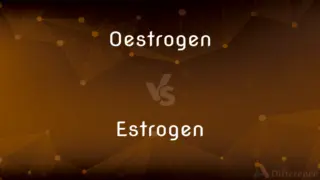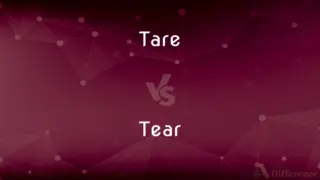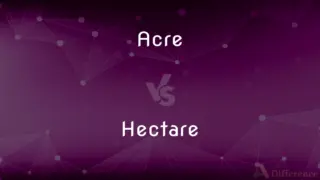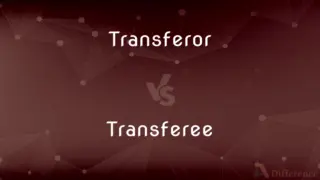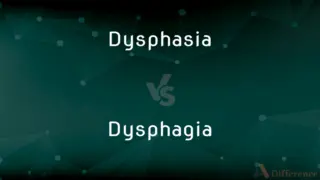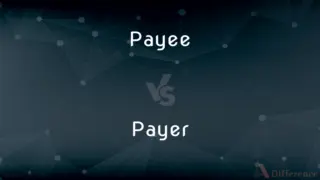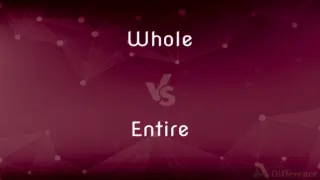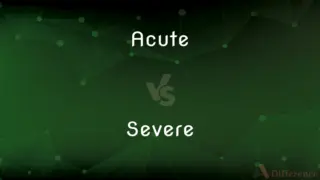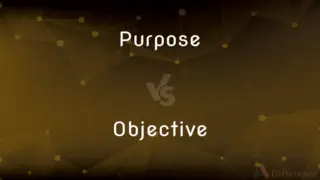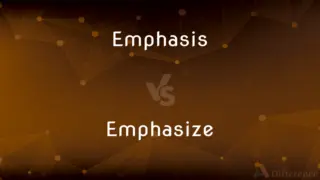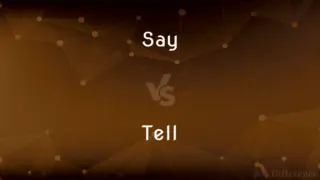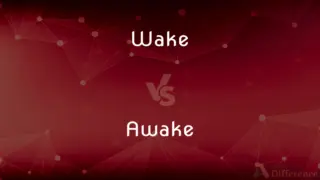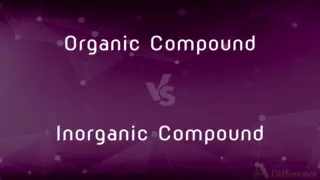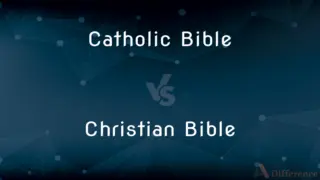Logic vs. Philosophy — What's the Difference?
By Tayyaba Rehman & Fiza Rafique — Updated on March 26, 2024
Logic is the study of principles of valid reasoning and argumentation, while philosophy explores fundamental questions about existence, knowledge, values, and reason.
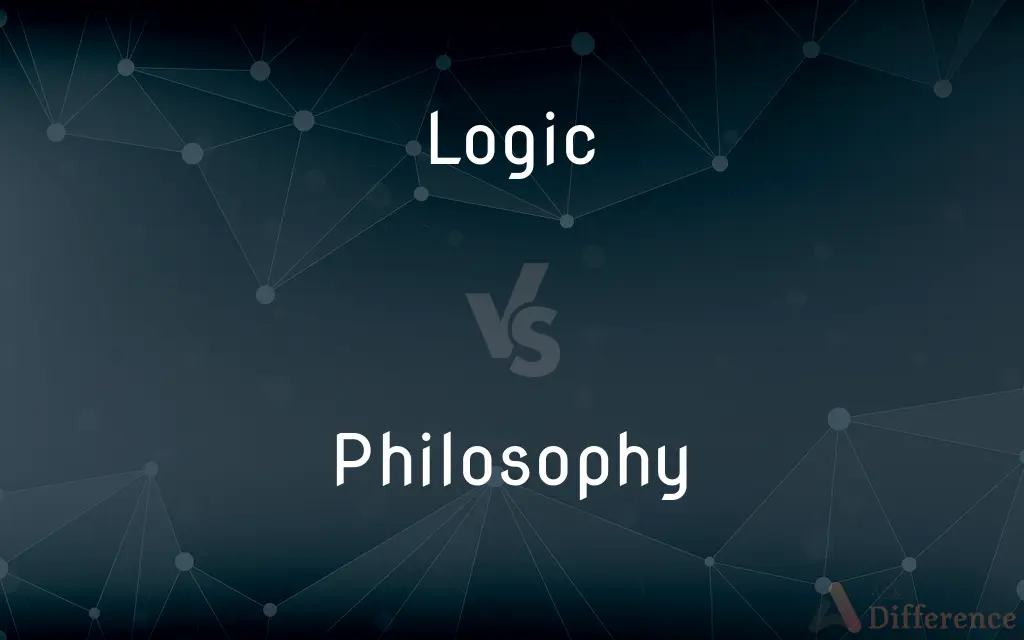
Difference Between Logic and Philosophy
Table of Contents
ADVERTISEMENT
Key Differences
Logic focuses on the structure of arguments, assessing their validity and soundness based on formal rules. It aims to distinguish good reasoning from bad reasoning, using symbols and systems like propositional and predicate logic. Philosophy, on the other hand, encompasses a broader spectrum of inquiry, questioning the nature of reality, ethics, aesthetics, and the foundations of knowledge itself. It employs critical analysis, speculation, and various philosophical methodologies to explore these topics.
While logic often employs a formal, mathematical approach to understand and apply the principles of reasoning, philosophy relies on a more discursive and speculative method. Philosophers engage in debates on metaphysical concepts, ethical dilemmas, and epistemological issues, whereas logicians focus on the formal properties of statements and their logical connections.
Logic serves as a fundamental tool within philosophy, providing a framework for constructing coherent and rational arguments. However, philosophy extends beyond logic to address questions that cannot be resolved solely through logical analysis. It considers the implications of logical arguments on human existence, ethics, and knowledge.
In the context of their application, logic is frequently used in computer science, mathematics, and linguistics to solve problems and build systems based on clear, unambiguous principles. Philosophy, whereas, influences fields like law, politics, and education, shaping societal values, norms, and policies through philosophical reasoning and ethical considerations.
Despite their differences, both disciplines intersect and influence each other. Philosophical debates often employ logical reasoning to argue positions, and advancements in logic can lead to new philosophical insights, particularly in areas concerning language, mathematics, and the mind.
ADVERTISEMENT
Comparison Chart
Definition
Study of principles of valid reasoning and argumentation.
Inquiry into fundamental questions of existence, knowledge, values.
Approach
Formal, often mathematical.
Speculative, critical analysis.
Focus
Validity and soundness of arguments.
Broad questions of reality, ethics, aesthetics, knowledge.
Application Fields
Computer science, mathematics, linguistics.
Law, politics, education, ethics.
Relationship to Each Other
Serves as a tool within philosophy.
Encompasses logic as one of its methods.
Compare with Definitions
Logic
A form of reasoning where a conclusion is drawn from two given or assumed propositions.
In logic, a syllogism involves deducing a conclusion from two premises.
Philosophy
A branch of philosophy that explores the nature of reality.
Metaphysics questions the fundamental nature of existence and reality.
Logic
An error in reasoning that renders an argument invalid.
Identifying fallacies is a key skill in studying logic.
Philosophy
The study of knowledge and how it is acquired.
Epistemology addresses questions about belief, truth, and justification.
Logic
The study of the principles of correct reasoning.
Understanding logic is crucial for developing strong arguments.
Philosophy
The study of government, justice, rights, and the enforcement of a legal code by authority.
Political philosophy discusses the role and justification of government and laws.
Logic
Extends propositional logic by dealing with predicates and quantifiers.
Predicate logic allows for more nuanced arguments involving variables.
Philosophy
The branch of philosophy concerned with moral principles.
Ethics explores the concepts of right and wrong behavior.
Logic
A branch of logic focusing on sentences or propositions, deemed true or false.
Propositional logic evaluates the logical operators between propositions.
Philosophy
The area of philosophy dealing with beauty and artistic taste.
Aesthetics examines why we find certain things beautiful or sublime.
Logic
A mode of reasoning
By that logic, we should sell the company tomorrow.
Philosophy
Philosophy (from Greek: φιλοσοφία, philosophia, 'love of wisdom') is the study of general and fundamental questions, such as those about existence, reason, knowledge, values, mind, and language. Such questions are often posed as problems to be studied or resolved.
Logic
Logic (from Greek: λογική, logikḗ, 'possessed of reason, intellectual, dialectical, argumentative') is the systematic study of valid rules of inference, i.e. the relations that lead to the acceptance of one proposition (the conclusion) on the basis of a set of other propositions (premises).
Philosophy
The study of the fundamental nature of knowledge, reality, and existence, especially when considered as an academic discipline.
Logic
The study of principles of reasoning, especially of the structure of propositions as distinguished from their content, and of method and validity in deductive reasoning.
Philosophy
A theory or attitude that acts as a guiding principle for behaviour
Don't expect anything and you won't be disappointed, that's my philosophy
Logic
A system of reasoning
Aristotle's logic.
Philosophy
The study of the nature, causes, or principles of reality, knowledge, or values, based on logical reasoning.
Logic
The formal, guiding principles of a discipline, school, or science.
Philosophy
A system of thought based on or involving such study
The philosophy of Hume.
Logic
Valid reasoning
Your paper lacks the logic to prove your thesis.
Philosophy
The study of the theoretical underpinnings of a particular field or discipline
The philosophy of history.
Logic
The relationship between elements and between an element and the whole in a set of objects, individuals, principles, or events
There's a certain logic to the motion of rush-hour traffic.
Philosophy
An underlying theory or set of ideas relating to a particular field of activity or to life as a whole
An original philosophy of advertising.
An unusual philosophy of life.
Logic
The nonarithmetic operations performed by a computer, such as sorting, comparing, and matching, that involve yes-no decisions.
Philosophy
The love of wisdom.
Logic
Computer circuitry.
Philosophy
(uncountable) An academic discipline that seeks truth through reasoning rather than empiricism.
Philosophy is often divided into five major branches: logic, metaphysics, epistemology, ethics and aesthetics.
Logic
Graphic representation of computer circuitry.
Philosophy
(countable) A comprehensive system of belief.
Logic
Logical
Philosophy
(countable) A view or outlook regarding fundamental principles underlying some domain.
A philosophy of government;
A philosophy of education
Logic
(uncountable) A method of human thought that involves thinking in a linear, step-by-step manner about how a problem can be solved. Logic is the basis of many principles including the scientific method.
Philosophy
(countable) A general principle (usually moral).
Logic
The study of the principles and criteria of valid inference and demonstration.
Philosophy
(archaic) A broader branch of (non-applied) science.
Logic
The mathematical study of relationships between rigorously defined concepts and of mathematical proof of statements.
Philosophy
A calm and thoughtful demeanor; calmness of temper.
Logic
A formal or informal language together with a deductive system or a model-theoretic semantics.
Philosophy
Synonym of small pica.
Logic
(uncountable) Any system of thought, whether rigorous and productive or not, especially one associated with a particular person.
It's hard to work out his system of logic.
Philosophy
To philosophize.
Logic
(uncountable) The part of a system (usually electronic) that performs the boolean logic operations, short for logic gates or logic circuit.
Fred is designing the logic for the new controller.
Philosophy
Literally, the love of, inducing the search after, wisdom; in actual usage, the knowledge of phenomena as explained by, and resolved into, causes and reasons, powers and laws.
Logic
To engage in excessive or inappropriate application of logic.
Philosophy
A particular philosophical system or theory; the hypothesis by which particular phenomena are explained.
[Books] of Aristotle and his philosophie.
We shall in vain interpret their words by the notions of our philosophy and the doctrines in our school.
Logic
(transitive) To apply logical reasoning to.
Philosophy
Practical wisdom; calmness of temper and judgment; equanimity; fortitude; stoicism; as, to meet misfortune with philosophy.
Then had he spent all his philosophy.
Logic
(transitive) To overcome by logical argument.
Philosophy
Reasoning; argumentation.
Of good and evil much they argued then, . . . Vain wisdom all, and false philosophy.
Logic
The science or art of exact reasoning, or of pure and formal thought, or of the laws according to which the processes of pure thinking should be conducted; the science of the formation and application of general notions; the science of generalization, judgment, classification, reasoning, and systematic arrangement; the science of correct reasoning.
Logic is the science of the laws of thought, as thought; that is, of the necessary conditions to which thought, considered in itself, is subject.
Philosophy
The course of sciences read in the schools.
Logic
A treatise on logic; as, Mill's Logic.
Philosophy
A treatise on philosophy.
Logic
Correct reasoning; as, I can't see any logic in his argument; also, sound judgment; as, the logic of surrender was uncontestable.
Philosophy
A belief (or system of beliefs) accepted as authoritative by some group or school
Logic
The path of reasoning used in any specific argument; as, his logic was irrefutable.
Philosophy
The rational investigation of questions about existence and knowledge and ethics
Logic
A function of an electrical circuit (called a gate) that mimics certain elementary binary logical operations on electrical signals, such as AND, OR, or NOT; as, a logic circuit; the arithmetic and logic unit.
Philosophy
Any personal belief about how to live or how to deal with a situation;
Self-indulgence was his only philosophy
My father's philosophy of child-rearing was to let mother do it
Logic
The branch of philosophy that analyzes inference
Logic
Reasoned and reasonable judgment;
It made a certain kind of logic
Logic
The principles that guide reasoning within a given field or situation;
Economic logic requires it
By the logic of war
Logic
A system of reasoning
Common Curiosities
Why is logic important in philosophy?
Logic provides a foundation for constructing and evaluating arguments, which is essential for philosophical reasoning and analysis.
Are ethics and logic related?
Ethics concerns moral principles and values, whereas logic deals with reasoning. However, ethical arguments often employ logical reasoning to support moral claims.
How does philosophy differ from logic?
Philosophy is a broad discipline that explores fundamental questions of existence, knowledge, values, and reason, while logic specifically studies the structure and criteria of valid reasoning.
What role does logic play in mathematics?
Logic underpins the foundational principles of mathematics, defining the structure and consistency of mathematical proofs and theories.
Is philosophy practical?
Yes, philosophy has practical applications in developing critical thinking skills, ethical reasoning, and the examination of societal norms and values.
Can you use logic without studying philosophy?
Yes, logic can be applied in various fields like mathematics, computer science, and linguistics independently of philosophical study.
Can logic prove everything?
Logic can't prove everything, especially questions related to subjective experience, moral values, and existential matters, which often require philosophical inquiry.
How is logic used in computer science?
Logic forms the basis of algorithmic thinking and is crucial for programming, database structure, and software development.
How does metaphysics relate to philosophy?
Metaphysics is a central branch of philosophy that deals with the fundamental nature of reality and existence.
What is logic?
Logic is the study of the principles and criteria of valid inference and demonstration, focusing on maintaining a consistent relationship between premises and conclusion.
Can philosophy exist without logic?
While philosophy can explore beyond logical structures, logic is essential for coherent philosophical argumentation and analysis.
How do ethics and aesthetics differ in philosophy?
Ethics deals with moral values and principles, while aesthetics focuses on beauty, art, and taste.
What is a fallacy in logic?
A fallacy is a flaw in reasoning that leads to invalid arguments, often due to incorrect premises or illogical conclusions.
What is the difference between epistemology and logic?
Epistemology is the study of knowledge and belief, focusing on how we know what we know, while logic is concerned with the form and structure of arguments.
Why study philosophy?
Studying philosophy enhances critical thinking, problem-solving skills, and the ability to question and understand complex issues regarding human existence and societal values.
Share Your Discovery
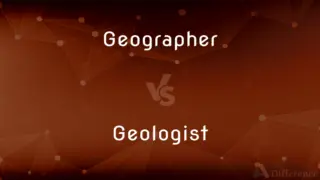
Previous Comparison
Geographer vs. Geologist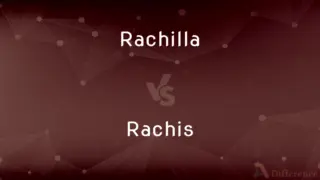
Next Comparison
Rachilla vs. RachisAuthor Spotlight
Written by
Tayyaba RehmanTayyaba Rehman is a distinguished writer, currently serving as a primary contributor to askdifference.com. As a researcher in semantics and etymology, Tayyaba's passion for the complexity of languages and their distinctions has found a perfect home on the platform. Tayyaba delves into the intricacies of language, distinguishing between commonly confused words and phrases, thereby providing clarity for readers worldwide.
Co-written by
Fiza RafiqueFiza Rafique is a skilled content writer at AskDifference.com, where she meticulously refines and enhances written pieces. Drawing from her vast editorial expertise, Fiza ensures clarity, accuracy, and precision in every article. Passionate about language, she continually seeks to elevate the quality of content for readers worldwide.




